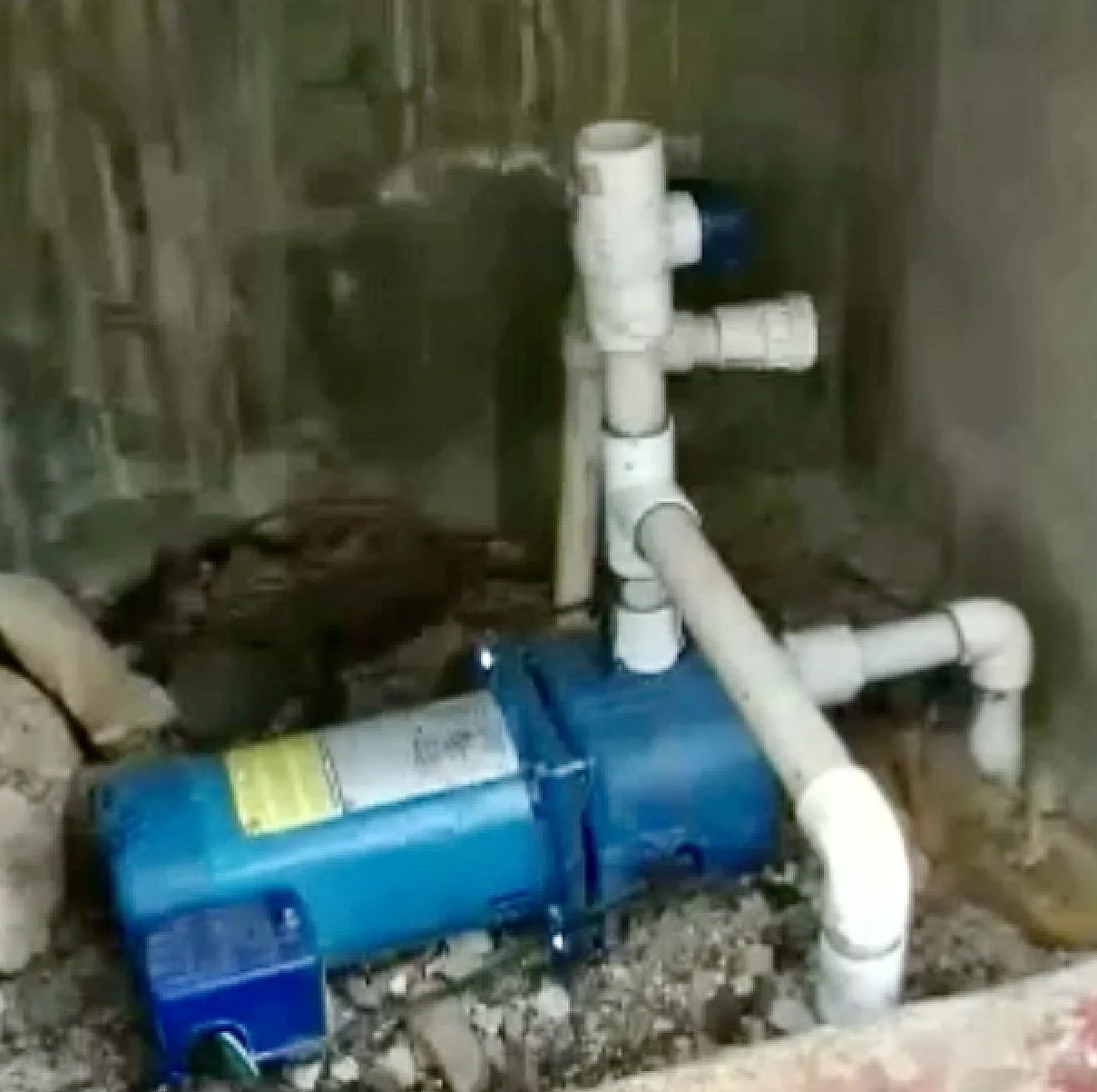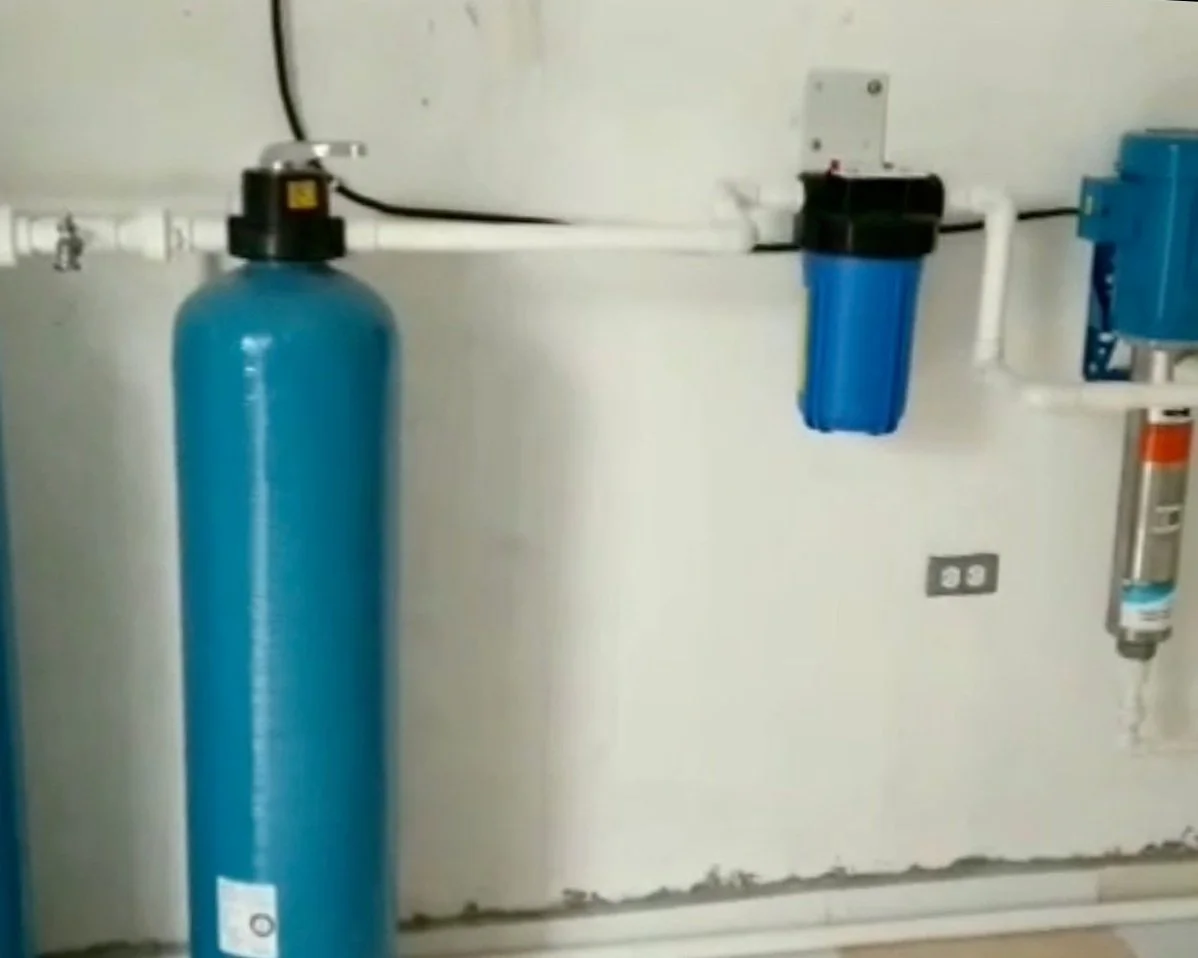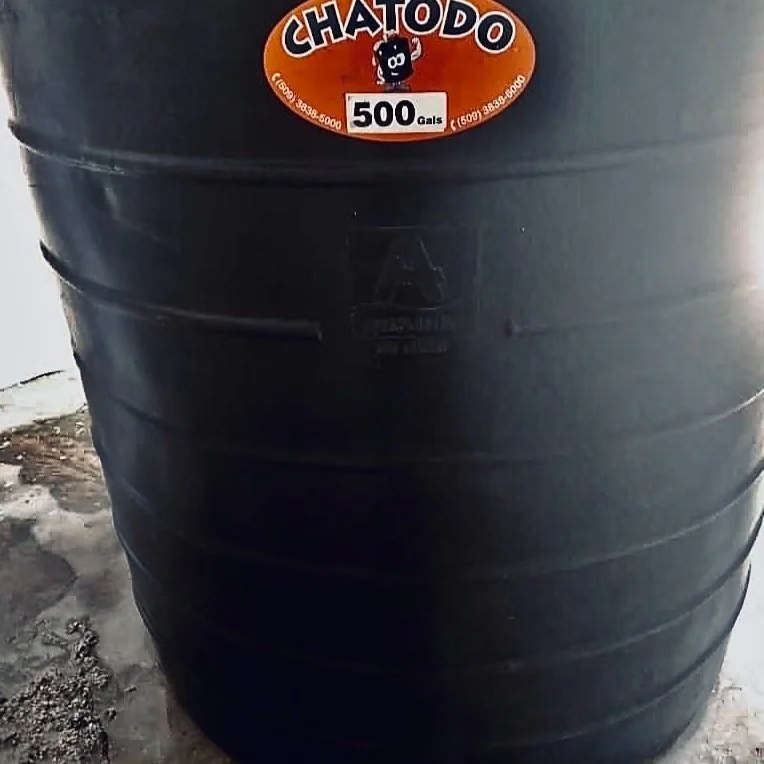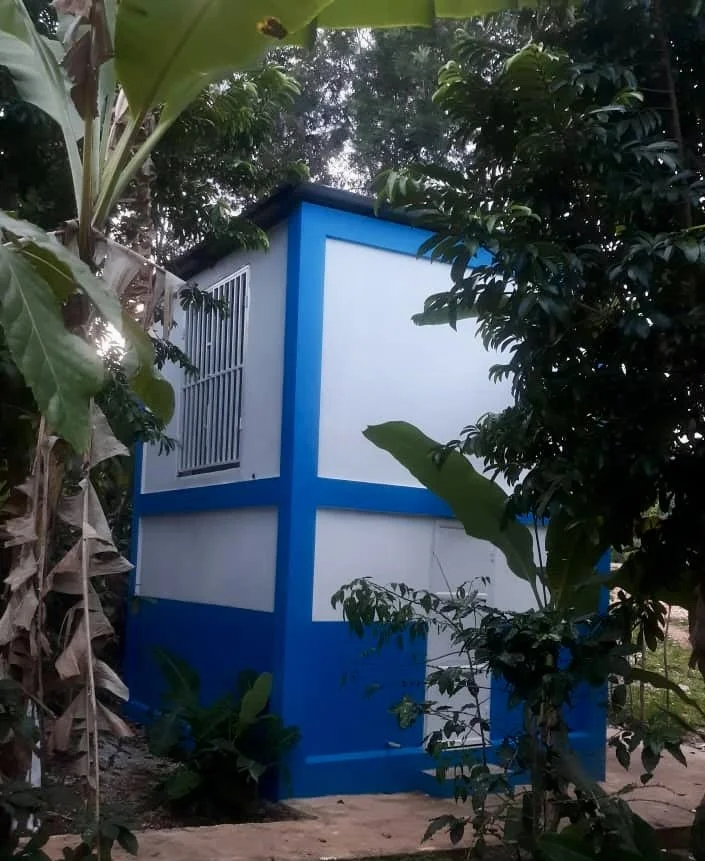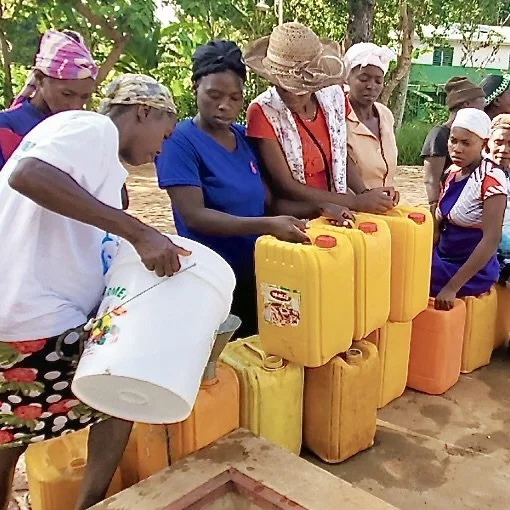Access to Water is a basic human right.
Access to water is a basic human right and fundamental to survival. Women and children traditionally bear the responsibility and the physical burden of fetching water in this rural region. This chore, often involving long treks with heavy water containers, is not just physically taxing but also exposes individuals to health risks due to the contaminated nature of the water sources.
Over the course of a decade, FOHNY took significant steps to address these issues by building rainwater harvesting systems (cisterns) in every structure it built, including the school, clinic and cafeteria.
Everyday after school at 4pm women of the community and surrounding villages come to the cistern to collect clean water for drinking, cooking, washing, and other needs.
A community cistern on school grounds, capable of storing and treating 800,000 gallons of water, provides a crucial source of clean, potable water for these families.
The improvements in water access have had a ripple effect on health, particularly for women, girls, and children. With cleaner water and hygiene workshops, incidences of water-born diseases, have dropped.
The time and energy saved from not having to fetch water from distant or contaminated sources have freed women and girls to engage more in education, employment, and community-building activities.



